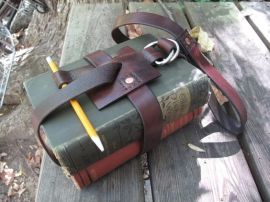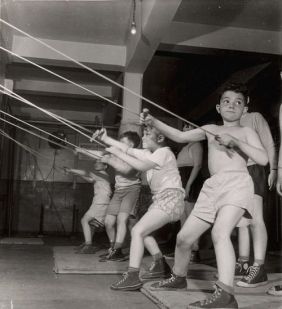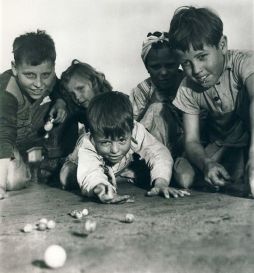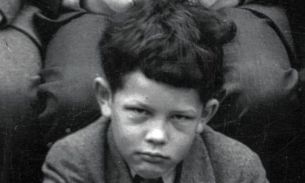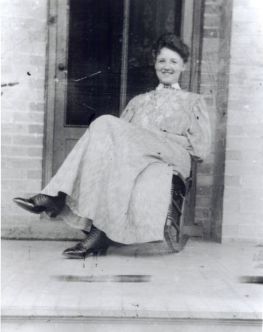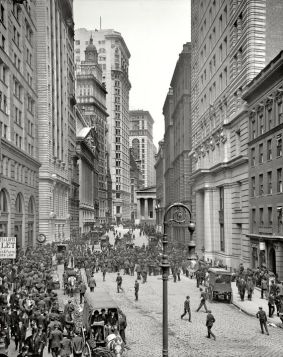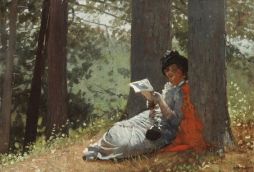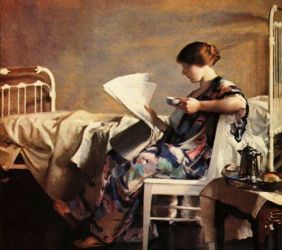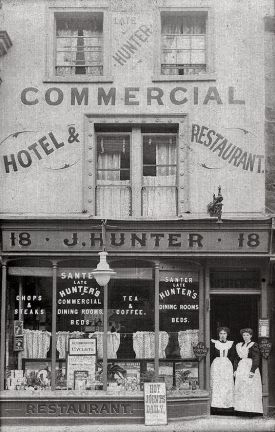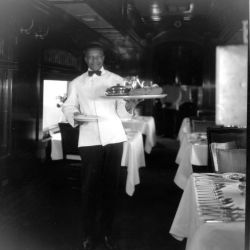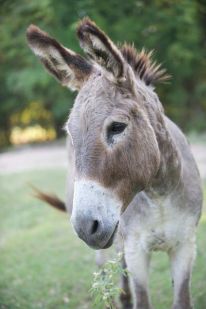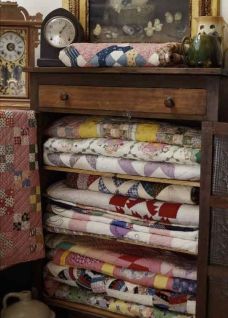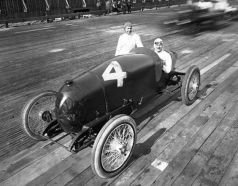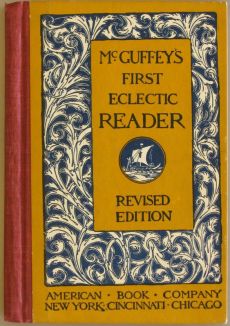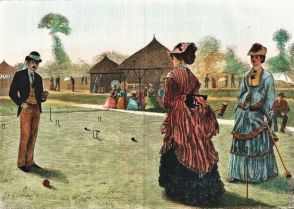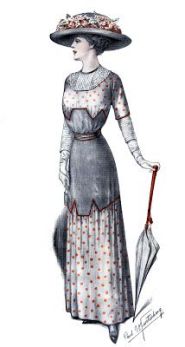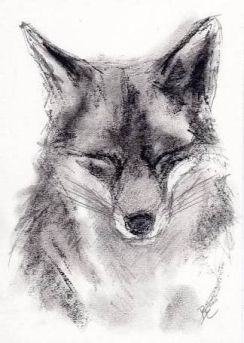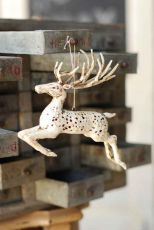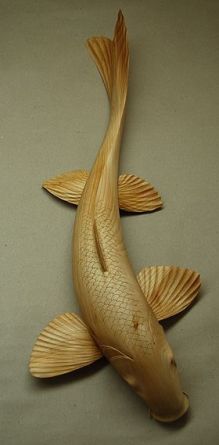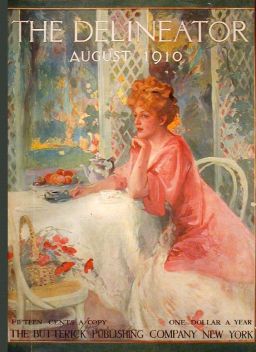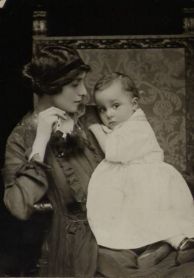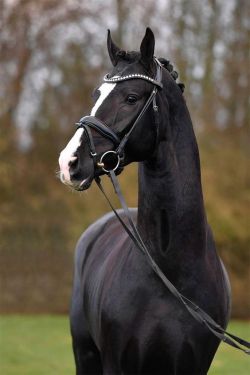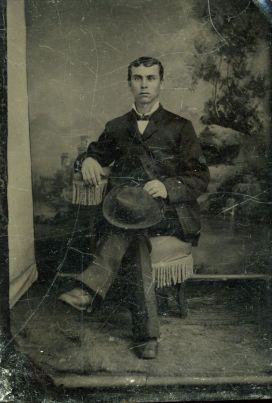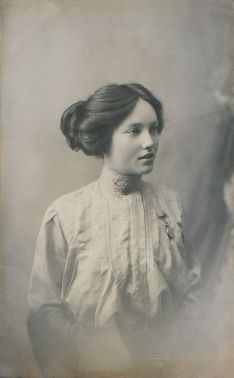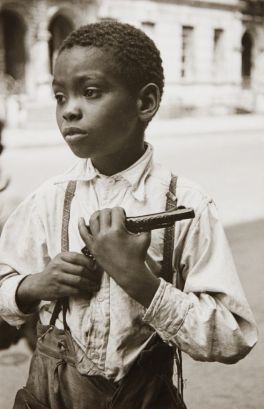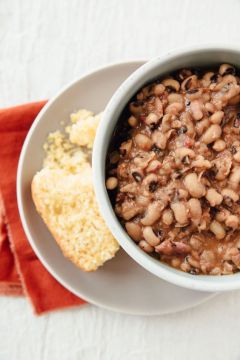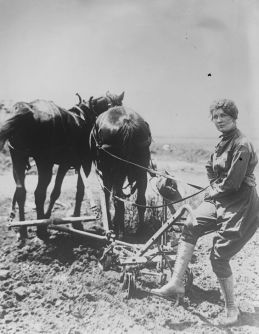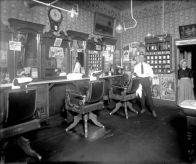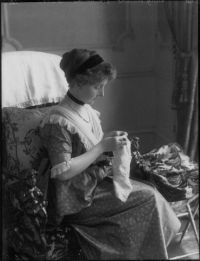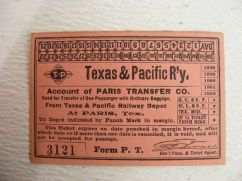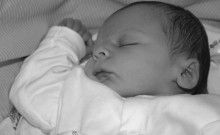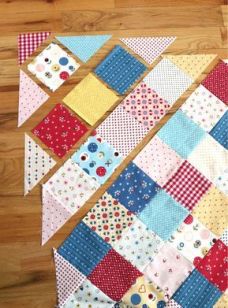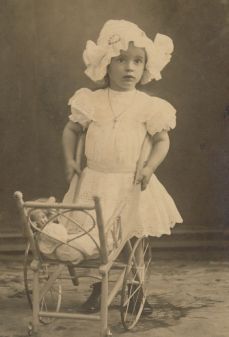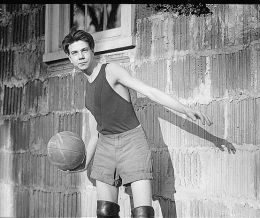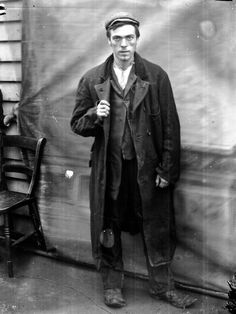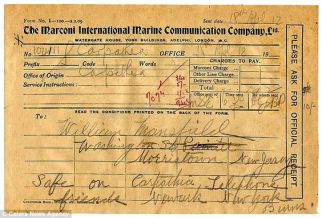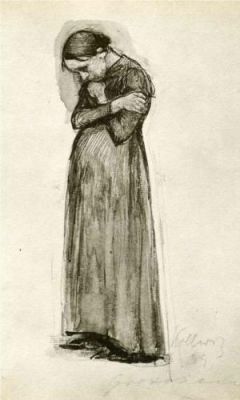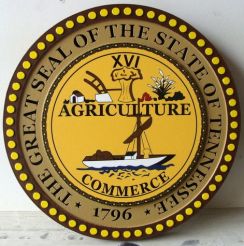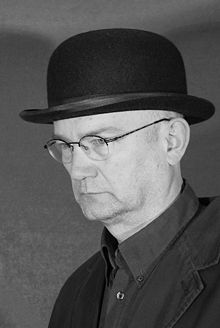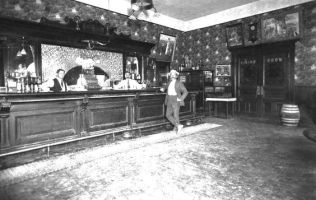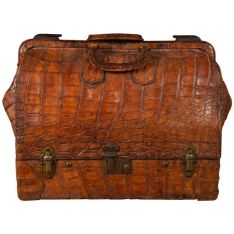George was tired. As tired as the stiff, blotched, late–summer leaves of the ash tree in Addie Douglas’s front yard. He hauled on the parking brake and killed the engine. The August air hung limp and heavy, even though it was only nine in the morning. He hoped Ned remembered that today was the day his train left for New York. George sure didn’t want to have to tramp back through the woods to his house.
He got out of the car and walked to the edge of the yard, staring into the woods. He tilted his hat back on his head and looked up at the sky. It was blue now, but by midday there’d be a dull, whitish dome of humidity blanketing everything.
“George?”
He turned around. Addie stood on the front porch.
“Oh. Hello.” He touched his hat brim. “Came to get Ned, carry him to the train. Didn’t mean to disturb.”
“You’re not; don’t be silly. Would you care to sit till he comes? I’ve got some coffee.”
“Well … thanks. Yes, I guess that’d be all right.” He ambled back toward the house. 
There was a cane–bottomed rocker at the corner of the porch, near the swing. He sat in it. A minute later Addie came out of the house carrying a wooden tray with two steaming cups.
“Cream and sugar?” she said.
“No, thanks, just black.”
He took a cup and saucer from the tray and balanced it in his lap. She set the tray on one end of the swing and carefully sat down on the other end. He slowly brought his cup to his lips and blew across the top of the hot coffee. He took a careful sip.
“Going to be hot again today, I expect,” she said.
George nodded.
“Where’s Ned going?”
“New York.”
Her eyes widened. “New York City?”
He nodded.
“Whatever for?”
“He’s going to art school.” George felt a little bloom of pride. He took a small sip.
“Well, I’ll say to my time …” She blew on her coffee. “How’d he ever manage that? I mean, he’s surely very talented, but—”
“I’m sending him.”
As soon as he said it, George felt a little ashamed. Or, not ashamed, maybe, but embarrassed, as if he’d put himself forward when it would’ve been better to keep quiet. He waited, taking a sip of coffee.
“Well, George. That’s really something. Really generous of you.”
George gave a little shrug. “Ned’s a fine young man. He deserves a chance.”
She was looking at him. He tried to meet her eyes but couldn’t. He drank some more coffee.
There was a crash inside the house. She put her cup and saucer on the tray, splashing a little coffee into the saucer. She got up from the swing and hurried into the house. “Jake!” he heard her call out as she opened the door. “What are you doing?” 
The swing swayed slowly back and forth from her leaving. George watched the ripples bounce back and forth across the black surface of her coffee. The cup rattled against the saucer, but it didn’t tip. He heard voices inside the house: Addie scolding and her little boy whining in protest. In a little while she carne back out onto the porch.
“That young ‘un might not live to see his seventh birthday,” she said.
George smiled. “How’s your daughter?”
“Oh … she’s fine, I guess. Considering.”
It sounded like she had more in mind to say, but when he looked at her, she’d turned her face toward the road.
A brown thrush trilled in some rhododendrons at the edge of the woods.
“I sure am sorry, Addie. For everything you’ve been through.”
She gave him something not quite like a smile and then minded her coffee.
They heard footsteps, then Ned came around the corner of the house. He was carrying a burlap feed sack cinched at the neck with a piece of rope. He wore a white shirt buttoned to the neck and a pair of blue bib overalls, so new and stiff the legs barely bent when he walked. He set the sack down on the ground near the porch and shoved his hands deep in the pockets of the overalls.
“Hello, Ned. Mr. Hutto tells me I’m going to have to find a new hired man,” Addie said.
He either ducked his head or nodded; it was hard to tell which.
“Do you have everything, Ned?” George said.
“Yes, sir.” He nudged the sack with the toe of his brogan.
There was a short, quiet moment. “Wait here,” Addie said, and went back in the house. She came back a couple of minutes later carrying a black leather valise. “Here you go, Ned. I’ve been meaning to give this to you anyway. You might as well use it to carry your things to New York.” 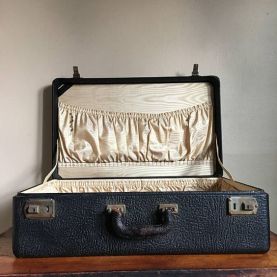
She handed him the valise. He reached up to take it, and George could see the flush creeping up his neck.
“Thank you, ma’am.” He opened it and began transferring items from the sack.
“One more thing,” Addie said. She went back into the house.
“Here are your tickets, Ned,” George said as she left. “All your transfers and everything. You remember what I told you about changing trains in Philadelphia?”
“Yes, sir.”
“Professor Koch said he’d be waiting for you at Grand Central. I’ve described him for you—”
“Yes, sir.”
There was so much more George wanted to say to him. He wanted to tell him to relish this chance; it wasn’t likely to be repeated. He wanted to tell him not to be afraid of the strangeness of the place and the people; that was only a matter of experience and circumstance anyway, and besides, if you set a New Yorker down in the middle of the woods and told him to find his way home, he’d be just as lost as somebody from Tennessee who found himself in the middle of Manhattan. He wanted to tell Ned to cherish the gift he had, to hone it and nurture it and let it turn the world on its ear.
“I know you’re going to do just fine, Ned. I’ve got every confidence in you.”
Ned studied the toes of his shoes. He nodded.
“Yes, sir. I’ll do my best.”
Addie came back out onto the porch, and in her arms were a jar of some kind of preserves, a loaf of bread wrapped up in a cotton dish towel, a jar of pickles, and a hunk of yellow cheese.
“Now, Ned, I think you’ve got enough room in the valise to pack most of this stuff. That’s a long train ride, and I expect you’ll get hungry, so I just grabbed a few things.” She started handing the food to him. “I know your mama probably gave you some good stuff, but just in case—”
“Yes, ma’am. Thank you. I’m obliged.”
“Oh, now don’t be silly. I can’t have you going all the way off to New York City and starving on the way. There. I think that’ll fit, don’t you?”
“Yes, ma’am.”
“I tell you, Ned, I just don’t know if I can let you go or not. Who’s going to chop wood and do chores for me?” 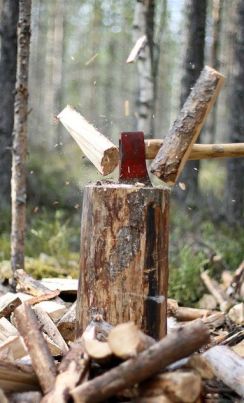
Ned scuffed his toe in the dirt.
“Willie Lewis, ma’am.”
“Who?”
He looked up at her for an instant, then back down at the ground. “Willie Lewis. He says he needs a job.”
“Lila’s boy?”
“Yes, ma’am.”
“Well.” She smiled at him, then at George. “I guess that settles that.”
“Ned, we’d better get going,” George said.
“Yes, sir.” He picked up the valise.
Addie leaned over the porch railing and gave Ned a quick, hard hug.
“Ned, I just know you’re going to do really well at that school. One of these days that fish you made me will be worth—oh, I don’t know—a hundred dollars.”
His cheeks were beet red.
“Yes, ma’am. Thank you, ma’am.”
George went down the steps. He turned and looked back at her. “Thank you, Addie. For helping him out.”
“Oh, goodness! He’s done far more for me than I’ve ever done for him.”
George smiled. “Well, I’m not so sure about that.”
She gave him a tiny smile in return. “I’m always glad to help when I can.”
“Yes. I believe that’s right,” George said. He ducked his head then and pushed his glasses up on the bridge of his nose. He went to his car and started it. Ned tossed his valise in the backseat, and they backed out and headed down the lane.
I need to get in touch with Lila, she thought. I need to see if Willie can come to work.
*******
The air coming through the train window was hot but better than nothing. It seemed to Becky as if the closer she got to Texas, the hotter and more stifling the air became. But it was August, after all, and the air she’d left behind in Little Rock wasn’t any better, that she could tell.
At least Daddy was doing better; that was one thing to be thankful for. Maybe now that he was back on his feet for the most part, Mother could manage on her own. And with her tainted daughter gone back to Texas, maybe she wouldn’t have to endure quite so much polite silence from her acquaintances.
Neither of them had asked Becky if she was going back, but neither had they invited her to stay. She wasn’t sure if it was because they respected her choice or because they were too ashamed to admit it existed. She tried to remember if they’d even talked about Zeb while she’d been home. She didn’t think so. But every so often, Becky could tell by her mother’s look that she was wondering. Or maybe trying to figure out where she and Daddy had gone wrong.
When they’d gotten to her platform at the station, Daddy had squeezed her arm. “Well, Sarge,” he’d said, leaning close, “I guess you better get on back to Texas.”
Another time, Becky might have teared up. But too much had changed, somehow. She’d smiled at him and kissed him on the cheek. She’d reached past him to hug Mother. And she’d turned and stepped up into her car. Just like she knew what she was doing. 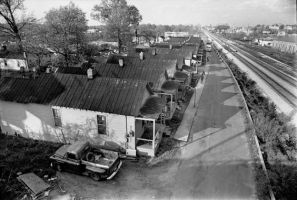
She looked out the window. The train was rolling through the soggy bottom country east of the Red River. They’d probably cross into Texas in the next hour or two. Just off the railroad right–of–way, in the corner of a cotton field, stood a row of unpainted shotgun houses. Half–naked colored children chased each other in the bare dirt yard of one of the houses, and a heavy old woman sat on a keg by the front door of another. The old woman watched the train as it went by.
Becky wondered where the old woman had been, what she’d seen. Had she ever left somewhere and come back? Or had she lived all her life beside the tracks, watching other people come and go but always staying in the same place herself? Did she ever look at the windows of the trains as they passed, wondering about the people sitting behind the glass?
You could lose either way, Becky figured—going or staying. It was just a question of which loss you thought you could tolerate. At least Zeb had enough share in her shame that he couldn’t look down on her. That was something, she guessed. Maybe it was enough, for now, enough to bring her back. Beyond that, it was hard to say.
*******
Zeb left the telegraph office, trying to ignore the heavy feeling starting up in his chest. Still nothing. He hadn’t heard a word from Becky for the three months she’d been gone, except for the terse wire she’d sent from Little Rock, notifying him of her safe arrival.
It wasn’t right, what she was doing. That was the thought at the front of his mind. It contended with the thought at the back of his mind, the one that kept saying he didn’t deserve anything good from her or anyone else after all he’d done. But didn’t a man ever get through paying for his sins? When did enough get to be enough?
He decided to go over to the hotel, drink a cup of coffee, see what was going on. This time of the afternoon Colonel Dickson and some of the other big wildcatters would usually be there, smoking cigars and lying to each other about their prospects and the production from their wells. Zeb picked his way across Front Street, tiptoeing around the muddiest places. Somebody ought to do something about the streets. He might need to talk to the mayor. Grady wouldn’t do anything much on his own, but he’d be glad to let Zeb or somebody else with a little gumption take the lead. That was the way things got done around here. 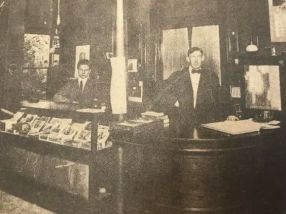
The hotel lobby was quiet, but the blue smoke of Cuban cigars was rolling out of the restaurant. Zeb strolled in, letting his eyes adjust to the dark. “How about a soda, Mr. Rourke?”
“Usual?”
“Yes, sir.”
Zeb slapped a dime on the counter while the barkeep spooned the dark brown syrup into a glass and squirted it with seltzer water. “There you go,” he said, sliding it across to Zeb.
“Thanks. Keep the change.”
The oil men were at their usual corner table. Zeb walked over. One of them spotted him. “Hello, Zeb. Pull up a chair.”
He scooted in and set his drink on the table. Colonel Dickson looked at him. “Zeb, you still drinking that Waco sugar water instead of a man’s drink?”
Zeb shook his head and grinned. “Now, Colonel, you know—”
“Yeah, yeah.” He winked at his cronies. “I said I’d never trust a man that wouldn’t drink with me, but I don’t believe ol’ Zeb cares a rip what I think.”
“Looks to me like you don’t care either, Woodrow,” said one of the others, “long as the deals he sells you keep making oil. I tell you what, Zeb, you bring your next prospect over to my office, and I’ll let you drink all the Dr. Pepper you can hold and never say a word about it.”
Some of the men chuckled.
“Well, what you got going, fellas?” Zeb said.
The man to Colonel Dickson’s right, a big German named Schott, gave a theatrical shrug. “Dickson got all the production tied up. What else for us ‘cept borrowing money from Dickson, and him tighter than bark on a tree?”
Colonel Dickson took a long drag on his cigar and aimed a stream of smoke at the low ceiling. “You boys keep singing that old song, you’re gonna break my heart.” He flicked a thumbnail–sized ash onto the floor, then cocked his head at Zeb. 
“Tell you the truth, Zeb, me and the boys are glad you happened in here this afternoon. We were just talking about you.”
Zeb saw some of the others nodding and watching him. He took a slow drink of his soda and set it on the table.
“Must be an off day, you fellas don’t have any better topic for conversation.”
“Zeb, you’re a capable fellow; we all know that. And you’re honest. Least I’ve never caught you lying to me.”
“Don’t believe you will, Colonel.”
“Fact is, Zeb, we need somebody like you for a little venture we’re putting together. Somebody who knows how to put in a day’s work, knows how to talk to people.” The Colonel leaned toward him. “And somebody who won’t forget who he’s working for.”
They were all looking at him now. He pressed himself against the back of his chair, sat up straight.
“A little venture?”
“Yessir. The kind that’ll make you enough money to not care if you ever sell another deal to me or anybody else.”
“I’m listening.”
“You like to travel, don’t you, Zeb?”
Nearly an hour later, Zeb stepped out onto the boardwalk in front of the hotel and squinted into the late afternoon sun as he settled his hat on his head.
It was a lot to think about, he had to admit. If this Ranger oilfield was half as big as some of the Colonel’s scouts thought, it would generate an unimaginable amount of activity. Why, a discovery that size would make fortunes for hundreds of people. And to be the agent that brought it all together … The man that pulled that off would be in the history books.
He could just get on a train tomorrow and go, they told him. Stay in the best hotels back east, hobnob with the moneyed people. Represent the interests of the consortium in all the right places. And earn himself the same cut of the profits enjoyed by each of the other men gathered around the table. It sounded real good. 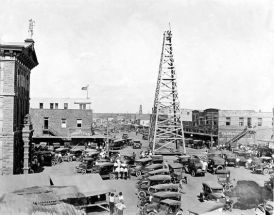
Especially right now, with things at home being what they were. Just get on the train and go. Come back when he wanted to—with enough money to do as he liked.
Coming toward him was a parcel–laden woman followed by a little girl. The little girl was fussing with her bonnet, asking for her mother’s help. Zeb stepped aside to let them pass on the relatively dry margin of the street. Just as they reached the place he stood the little girl’s bonnet fell off in the mud. Zeb scooped it up and flicked off most of the mud. He put it back on her head and tied the ribbons under her chin. He gave her a smile and stood back.
“Thanks, mister,” the mother said.
Zeb touched his hat brim, and they went on their way. He watched them go, thinking about Addie and his little girl. About the son named for him, the child he’d never seen.
It was the same old dream, and it was a good one: follow the rainbow till you find the pot of gold. It was out there, just over the next hill. You just had to keep moving. Once you found it, everything would be all right. And even if you didn’t, there was always another hill to climb. He shook his head and shoved his hands deeper in his pockets. He resumed his walk home.
He climbed the steps to the front porch and reached in his vest pocket for the house key. He put it in the lock, but it was already unlocked. Odd. He never left the house unlocked during the day. He went inside and immediately smelled her.
Becky came into the parlor.
“I hired a buggy to bring me from the station,” she said. “I didn’t want to bother you at work.”
He looked at her, reaching inside himself for some feeling, something a man might say when his wife came home after three months.
“How’s your daddy?”
“He’s going to be all right.”
“Well.” He nodded, not quite able to look at her, not quite able to look away. “I’m glad you’re home.”
She stood there for a second or two, gripping her elbows. She crossed to him, put a hand on his shoulder, and gave him a dry, quick peck on the cheek.
“Me, too,” she said. “Sit down and rest awhile. I’ll fix us something to eat.”
*******
This post is a chapter from the novel Sunday Clothes, by Thom Lemmons. Sunday Clothes will soon be available for purchase as an e-book at www.homingpigeonpublishing.com

So Fair and Bright (a weblog) by Thom Lemmons is licensed under a Creative Commons Attribution-Noncommercial-No Derivative Works 3.0 United States License.


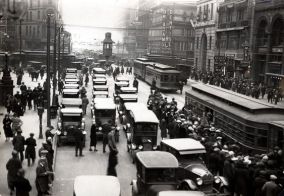

![]()








